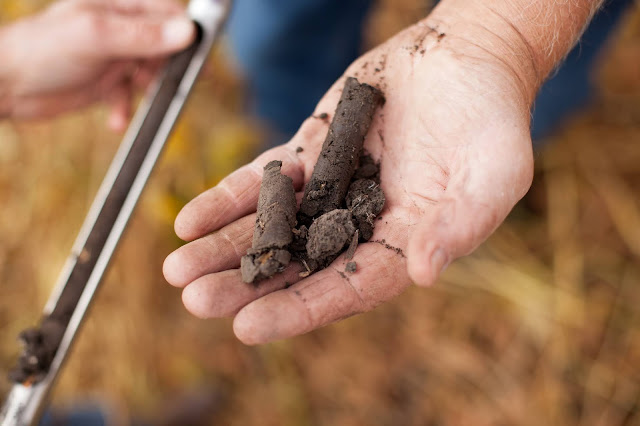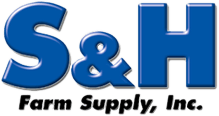The "Why's" Of Soil Sampling

Farming, in many ways, requires the same skills as Sherlock Holmes solving crimes. Sherlock Holmes has to examine the nooks and crannies of crime scenes and look for tiny pieces of information, and then Holmes needs to find the relationships between all of the information he found to make an accurate accusation to place the “who dunnit” in jail. When farming, farmers use the information at their disposal to make decisions affecting the crop yield. These decisions may be made up to a year before knowing whether the decision was a good decision. What happens when the information to make these critical choices is not available? Sherlock Holmes himself stated, “The temptation to form premature theories upon insufficient data is the bane of our profession.” Without all of the information, Holmes can’t find the criminal and the farmer can’t maximize the paychecks. Without soil sampling, farmers don’t have all of the information to sleuth smart farming decisions.
Advantages to soil sampling
Increased Yields
When it comes to high yield production, Crop Consultant and owner of Growers, LLC, Steven Valencsin believes precision is the key. He advocates for giving the plant the right things at the right time. By knowing the right fertilizers at the right amounts, his clients experience on average 20-40 bushel per acre increase in corn production.
Fertilizer Cost Savings
Soil sampling prevents spending money on unnecessary fertilizer. At the time of this writing, fertilizers are at an all-time high cost. The national average cost for anhydrous ammonia is selling for an average of $1,534/ton, double the price from May 2021. With soil sampling data, a farmer may have the data suggesting that if the farmer reduces the amount of fertilizer by $30/acre, then the result would be a $10/acre yield reduction. In this scenario, the farmer is actually gaining $20/acre in savings. Through basing decisions off of systematic soil sampling, Valenscin purports to have saved his clients on average $23/acre on lime and fertilizer costs.
Soil Sampling Considerations & Best Practices
- The cost to run a sample is about $8 to $16 per sample, depending on your testing site and how much data you are collecting. Depending on your needs, the costs can average between $.50 to $8/acre. Following the full process described below, every 100 acres at $6 per sample will cost about $300.
- Create a systematic process. A farmer can choose to start small and work up to a full process across an entire farm. The key is to make sure to collect several samples in a wide variety of places in a field. Including samples from sections of the field with known high, average, and low yields will allow a more complete picture. Full sampling usually entails collecting samples from 2.5 square acre sections of a field. There are several methodologies for covering an entire field. Check with your local Extension offices for resources on implementation resources.
- Soil samples should be collected at the depth of the plant size and the work in the field. For no-tillage fields, a sample size of 2.5”-4” will be needed. For tilled fields, a sample size of 6”-8” will be needed.
- Consider sampling every year. Some farmers have done sampling on a three-to-four-year cycle; however, information from previous seasons is often too outdated to be useful. Too many variables affecting yield production change from year to year. For example, a season with more rain can more rapidly decrease soil potassium. A weather pattern from three years ago will not be helpful in determining the potassium in the current year. Another example is a field having a high yield will use more soil nutrients than the field would have used if the yield was even a few bushels fewer. The fertilization needs change year to year.
Equipment
Farmers need to make sure they have the equipment able to distribute at the ratios determined from the soil sampling. S&H Farm Supply offers a wide range of sprayers, spreaders, and attachments at reasonable prices to make sure you maximize the yield in your fields. Visit us online, call, or stop in to any of our stores. We can ship nationwide as well.
Maximizing profit in farming is never easy, but establishing a systematic, annual soil sampling process give the data farmers need to be successful. Only when farmers have all of the information available to make decisions can they truly be Sherlock Holmes and capture the yield – and put money in their pockets.

